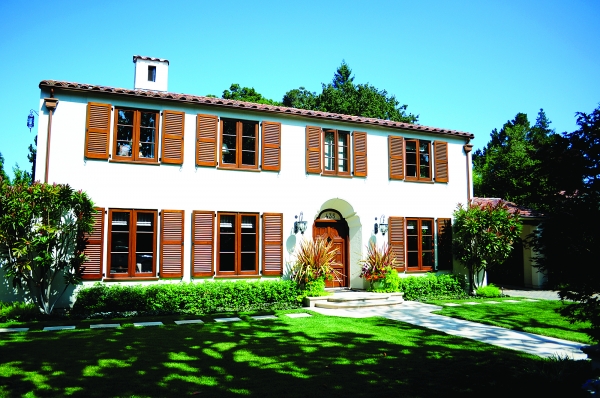While most homes are bought by individuals or families, others are sold to development companies, property managers or sometimes third-party limited partnerships.
Who are behind these organizations?
Palo Alto real-estate lawyer Philippe Davis said since real estate has become so valuable in the area, he has seen a fair share of limited liability company (LLC) home purchases.
"Based on some of the transactions I've done in the last couple of years, people from places like China or India have an interest in buying here on the Midpeninsula," he said. "They just generally are not going to buy it in their own name and have a company set up for the sole purpose of owning that real estate."
Tim Kerns, a Realtor with Coldwell Banker, who represents buyers and sellers from Burlingame down to Los Altos, said setting up an LLC also provides privacy. It's a way for foreign buyers to mask that there are multiple buyers, he said. For example, 10 people in China might buy a house in Atherton together, and the articles in the LLC will say who owns what percentage, but the public home-sale record will just name the company.
Wealthy buyers in particular may be more motivated now to make an effort to conceal their identity and purchase a home through an LLC, he said, because of a recent California law known as AB 1888 that requires the transfer taxes on homes to be made public, which makes it easier to figure out how much someone paid for a home. The transfer tax rate is about $1.10 per $1,000 of the home's value.
For example, a high-profile executive who wants to maintain confidentiality to avoid the scrutiny of making a $20 million home purchase might choose to use an LLC, Kerns said, so when the papers are signed, the home publicly appears to be sold to a company with a fictitious name like Purple Rainbow LLC.
Kerns said buying properties under an LLC also is popular among developers.
"If something goes wrong, they don't want the liability on their family or their taxes," he said.
It's safer to create a company to take on the risk, he added.
While using a third party for the purchase is perfectly legal in the United States, in recent years, there has been concern about wealthy foreigners buying luxury real estate using shell companies to hide assets from their home governments, which is illegal.
The U.S. government has been expanding its efforts to curb buyers from using this strategy to launder money. For the last six months, the government agencies have been scrutinizing such companies in regions where buyers more often buy luxury homes through entities. The program is focusing on six geographic areas across the U.S., including three Bay Area counties: San Francisco, San Mateo and Santa Clara, according to a press release from the Treasury Department's Financial Crimes Enforcement Network.
The government's efforts have helped generate leads and identify possible suspects, wrote Candice Basso, a Treasury spokeswoman, in an email.
As part of this federal program, title insurance companies must report certain information about real-estate transactions in which a legal entity purchases residential real estate for $2 million or more without external financing like a bank loan, Basso said. Additionally, title insurance companies need to report purchases made, at least in part, using currency or a cashier's check, a certified check, a traveler's check, a personal or business check, or a money order in any form. They then must share the identity of the buyer as well as the closing date, total purchase price and address of the property.
Karen Trolan, past president of the Silicon Valley Association of Realtors, said it's hard to say where exactly in the Bay Area the Treasury is targeting, but that usually more oversight begins in an area when someone reports a problem.
In her experience, Trolan said she typically has seen buyers use an LCC to renovate and flip a home. A group might go in together as an LLC to buy a fixer-upper home, renovate it and sell it, she said. For about two years, all of the tax implications and all of the liability during construction would be on the entity, shielding individuals from liability while they build a house.
Xin Jiang, a real estate agent with Alain Pinel Realtors in Palo Alto, has helped buyers purchase homes using an LLC, including one client last year who bought a $4.6 million home in the Community Center neighborhood of Palo Alto using this strategy to protect the privacy of her wealthy husband. Ironically, Jiang said, despite the benefits and privacy protection of using an LLC, that strategy can actually make it more difficult to buy a home.
"It has been a seller's market for six to seven years," she said. "Among buyers, the competition is severe. Most local sellers often don't want buyers using an LLC because they want a make sure a true family is moving into the home."



Comments